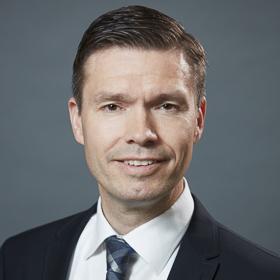TRANSATLANTIC CURRENTS
Russia’s War on Ukraine: Where Is US Policy Headed?
Tuesday 10 December, 2024 at 16:00-17:00 EET/15:00-16:00 CET
With just over a month left in his administration, President Joe Biden has taken additional steps to strengthen Ukraine’s position both on the battlefield and at the negotiating table, according to National Security Advisor Jake Sullivan. Notably, President Biden has loosened restrictions on Ukraine’s use of US-supplied longer-range missiles (ATACMS) to target military targets inside Russian territory and ordered the Pentagon to expedite delivery of remaining security assistance allocated by Congress before he leaves office. Whether such steps will serve to blunt the Russians’ onslaught in the east and their punishing air, missile, and drone attacks on Ukrainian energy infrastructure and other civilian targets is far from certain.
Meanwhile, US allies, partners – especially Ukraine – and adversaries are preparing to navigate the policies of the incoming administration under President-elect Donald Trump, who claimed during his campaign he could end the war “in 24 hours.” Many remain sceptical of Trump’s intentions, given his past statements about Ukraine, praise for Vladimir Putin, and frequent barbs directed at NATO Allies and the European Union. However, some, including advisors from his previous administration, argue that Trump’s dealmaking skills and a Ronald Reagan-like ”peace through strength” approach would allow him to show resolve with both Moscow and Kyiv.
This episode of Transatlantic Currents will discuss the recent evolution of the Biden Administration’s approach to Russia’s war on Ukraine and various factors – both domestic (including Congressional and American public opinion) and external – that are likely to shape the Trump Administration’s policy options and decision-making.
Programme:
Opening words & Q&A:
Charly Salonius-Pasternak, Leading Researcher, FIIA
Speaker:
Ambassador (ret.) John Herbst, Senior Director, Eurasia Center, Atlantic Council and former US Ambassador to Ukraine
Chair:
Leo Michel, Non-Resident Fellow, FIIA
Transatlantic Currents is a webinar series hosted by FIIA’s Center on US Politics and Power featuring American experts on political science and international relations. The series covers a wide array of timely topics from foreign and defense policy to US domestic issues of particular interest to the transatlantic community. The webinars are hosted by FIIA Non-Resident Fellows, Ambassador (ret.) Deborah McCarthy and Leo Michel.
You can register to follow the webinar here.
For more information: events@fiia.fi



